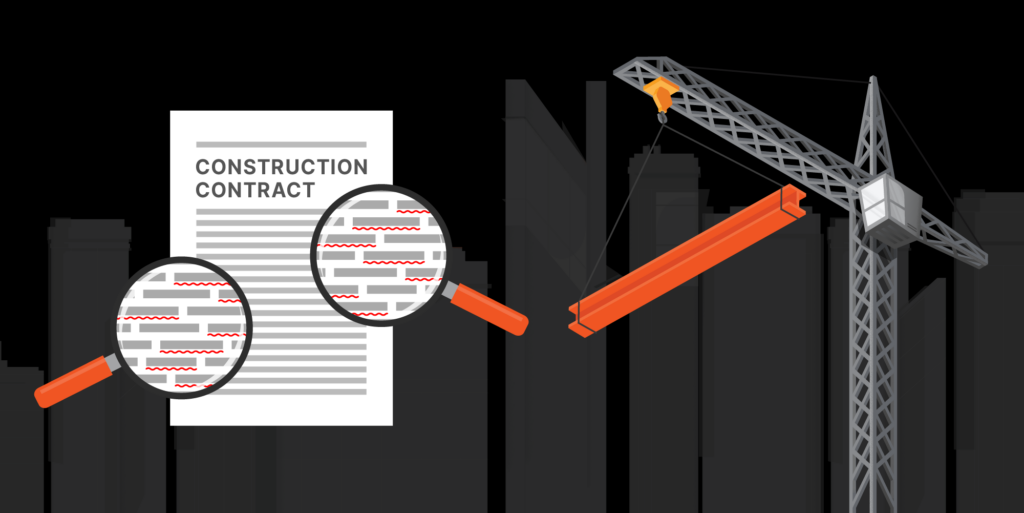— 14 min read
Escalation Clauses in Construction Contracts: When and How They Apply



Last Updated Oct 9, 2024

Peter Ryan
Peter J. Ryan, Esq. is a construction attorney from California. Ryan advises general contractors, subcontractors, construction managers, owners, developers and property managers in complex construction contract, project administration, and litigation matters. Ryan enables clients to manage risks by structuring and negotiating complex construction contracts, joint venture agreements, MOUs, commercial leases, non-securitized debt, and real estate transactions. With a litigation practice in both state and federal courts, Ryan has expertise in the nuances applicable to private, public, and federal construction projects in California and strategically advances his clients’ claims in all applicable forums including mediation and arbitration as well as bench and jury trials in state and federal courts. Ryan has served as local counsel for national companies with respect to construction and real estate disputes in California as well as national counsel for the coordination multijurisdictional matters. Peter Ryan was exposed to the construction industry at an early age via his grandfather’s electrical contracting business, which his father also served as president, and he interned at, learning the nuances of management, estimating, design, and field work. He is excited by the rapid rate of technologically driven advances allowing for safer, more efficient, and cost-effective projects and seeks to leverage these technologies to deliver superior solutions for clients in the context of disputes, negotiations, and risk management.

Taylor Riso
Contributing Writer
95 articles
Taylor Riso is a marketing professional with more than 10 years of experience in the construction industry. Skilled in content development and marketing strategies, she leverages her diverse experience to help professionals in the built environment. She currently resides in Portland, Oregon.

Alex Benarroche
Associate Counsel
26 articles
Alex Benarroche serves as Associate Counsel for Procore. His legal expertise includes construction, contracts, business, and intellectual property. Alex is bilingual in English and Spanish. He earned a J.D. from Loyola University College of Law and an M.S. in Intellectual Property and Internet Law from the University of Alicante in Spain. Originally from South Florida, Alex has called New Orleans home since 2003.
Last Updated Oct 9, 2024

In construction contracts, an escalation clause allows for the escalation of a certain price for labor or materials to be used in a construction project. This type of clause is most commonly used to account for the potential fluctuation of material prices throughout the life of the project. It safeguards the contractor, allowing for adjustments in contract prices -- typically up to a certain limit -- when material or labor costs rise unexpectedly.
For instance, if the price of steel increases dramatically, the escalation clause would kick in to increase the price of the project. This type of clause protects a contractor's bottom line, allowing them to maintain financial stability without bearing full responsibility for market volatility.
In this article, we explore the fundamentals of escalation clauses, their importance in today’s construction contracts and how they can be utilized to navigate the complexities of a more volatile market.
Table of contents
Why Escalation Clauses Exist
The primary purpose of an escalation clause is to manage the financial risk associated with volatile material prices and labor costs. By shifting the responsibility for these cost increases to the client, contractors can submit lower bids since they do not need to include a buffer for potential price hikes.
These clauses are designed to protect contractors from the financial impact of significant price increases that occur after the contract has been signed. Under common law, particularly in lump sum or GMP contracts, the contractor typically bears the risk of price fluctuations. Any increase in costs after the contract is signed can erode a contractor's profit margins or even result in financial losses.
This arrangement is especially beneficial for long-term projects or those with uncertain start dates, where the timeline for material purchases is not fixed. In scenarios such as projects still in the design phase or those requiring lengthy government approvals, escalation clauses provide a way to handle cost uncertainties without placing the entire burden on a single party.
Sharing the Risk Between the Owner & Contractor
An escalation clause transfers the risk of price fluctuations to the owner, allowing for contract price adjustments based on significant changes in underlying costs. By distributing the risk of unpredictable cost increases, these clauses provide a fairer, more balanced approach to construction project pricing.
However, escalation clauses often work both ways, meaning that if the prices of materials or labor decrease, the savings are passed on to the client. So in addition to benefiting from lower bids, the client receives the potential benefits of market volatility along with the transfer of downside risk.
Escalation Clause Variations
Escalation clauses can also be tailored in various ways to share the risk of price escalations. These provisions can include percentage-based sharing of cost increases or specific thresholds that trigger adjustments, to suit the needs of all stakeholders involved.
By incorporating these clauses, both contractors and clients can navigate economic uncertainties with greater stability, ensuring that project costs remain fair and reflective of current market conditions.
Common Situations for Escalation
Price volatility can be driven by a variety of events, both economic and ecological. Unexpected escalations in prices frequently stem from:
- Material tariffs
- Natural disasters
- Material scarcity
- Inflation
- Legislative changes
An escalation clause can be written to apply to any specific list of items. However, the clause is often written to include materials that make up a significant portion of the direct costs:
- Steel
- Asphalt
- Lumber
- Aluminum
- Gypsum
- Unforeseen administration costs
Key Elements of an Escalation Clauses
Understanding the key elements of escalation clauses helps in effectively managing cost adjustments in construction contracts.
Definition of Trigger Events
Trigger events are specific conditions that activate the clause's provisions. These typically include significant increases in the prices of key materials or labor. Common materials subject to these clauses include steel, petroleum and lumber, which have experienced considerable price volatility.
For instance, during the COVID-19 pandemic, lumber prices surged by 200% to 300%, triggering many escalation clauses. Other trigger events can include new tariffs or supply chain disruptions that lead to unexpected cost increases. By clearly defining the allocation of risk in these unforeseen events, escalation clauses provide a structured response to cost fluctuations reducing disputes and facilitating timely Project delivery.
Adjustment Mechanism
The adjustment mechanism defines how price adjustments are calculated once a trigger event occurs. There are primarily two methods: index-based and cost-based adjustments.
- Index-based adjustments: This method uses published indices to determine cost changes. Common indices include the Consumer Price Index (CPI), Producer Price Index (PPI) and construction-specific indices like the ENR (Engineering News-Record) Cost Index. These indices provide a clear and standardized way to calculate adjustments based on market data at the time of contract signing and when the price change occurs.
- Cost-based adjustments: This approach relies on the actual cost increases experienced by the contractor. Contractors must provide detailed documentation showing the original costs and the increased prices. While this method can be more accurate, it requires thorough and transparent documentation to avoid disputes.
Notification Requirements
Notification requirements specify how and when contractors must inform clients of cost changes that trigger the escalation clause. Timely and clear communication ensures both parties are aware of the changes and can plan accordingly. This includes submitting formal notifications within a specified period and providing all necessary details to support the claim.
Documentation
Detailed documentation is essential for supporting claims under an escalation clause. Contractors must maintain comprehensive records of initial quotes and bid proposals, purchase orders, invoices and any other relevant financial documents. This documentation not only substantiates the cost increases but also helps in resolving potential disputes by providing clear evidence of the price changes. Thorough record-keeping demonstrates that the escalation adjustments are justified and transparent.
Explore data and trends for building materials prices.
Get the latest U.S. retail prices and view historical trends for common building materials.
Types of Escalation Clauses
Different types of escalation clauses address various aspects of cost increases, helping to manage the financial risks in construction contracts.
Material-Specific Clauses
Material-specific clauses focus on the cost fluctuations of particular materials that are prone to significant price volatility. Commonly targeted materials include steel, petroleum and lumber.
For instance, during the COVID-19 pandemic, there were unexpected price increases on many different materials, catching contractors by surprise and triggering escalation clauses. These clauses ensure that any substantial increase in the price of these materials can be accounted for in the contract, allowing for adjustments to the project cost to reflect current market conditions.
This approach helps protect contractors from bearing the full burden of unpredictable material price spikes. It also ensures that the owner has an incentive to modify or cancel a project that has become cost prohibitive due to escalation in the price of the planned materials.
Labor Rate Clauses
Labor rate clauses address changes in labor costs, which are particularly relevant in public works projects that require prevailing wages. In many public works contracts, labor costs can increase due to new union agreements or other changes in prevailing wage.
By including labor rate clauses, contractors can adjust their contract prices to reflect these mandated increases in labor costs. This is especially important in long-term projects where labor rates may change multiple times throughout the project lifecycle. These clauses help ensure that contractors are not financially disadvantaged by adhering to wage regulations that are outside of their control.
Fuel and Energy Clauses
Fuel and energy clauses account for the fluctuations in fuel and energy costs that can significantly impact project expenses. Given the volatility of fuel prices, which can be influenced by geopolitical events, natural disasters, or changes in supply and demand, these clauses allow for adjustments in the contract price based on actual fuel and energy cost changes. This type of clause is particularly beneficial for projects that involve substantial transportation or heavy machinery use (such as heavy civil construction), where fuel costs constitute a significant portion of the overall budget.
Advantages of Escalation Clauses
Incorporating escalation clauses in construction contracts offers several benefits that help manage financial uncertainties and ensure project stability.
Risk Mitigation
One of the primary advantages of escalation clauses is risk mitigation. These clauses allocate the burden of cost increases between contractors and owners, ensuring that neither party is disproportionately affected by market volatility. In fixed-price or GMP contracts, contractors typically bear the risk of price fluctuations. By incorporating escalation clauses, this risk is transferred all or in part to the owner, allowing for a more balanced and fair distribution of financial responsibility. This helps protect contractors from unexpected financial strain and promotes a more cooperative approach to managing cost uncertainties.
Lower Initial Bids
Escalation clauses enable contractors to offer lower initial bids because they do not need to include large contingencies to cover potential future price increases. Knowing they are protected against price hikes, contractors can submit more competitive bids. This makes projects more financially attractive to owners, as they can secure lower initial costs while still accounting for possible price changes during the project.
Financial Stability
Escalation clauses contribute to the overall financial stability of construction projects by allowing for contract price adjustments based on actual cost increases. This is particularly important for projects that span longer periods of time or those with uncertain start dates, where the timeline for material purchases is not fixed.
By including escalation clauses, both contractor and owner can agree on a target price while retaining the flexibility to adjust for changes in the market. This mechanism ensures project continuity, helps maintain financial viability and prevents disputes that could otherwise arise from significant cost increases.
Escalation Clause Challenges and Disadvantages
While useful, escalation clauses bring certain challenges and disadvantages that need to be managed.
Complexity
One of the main challenges of implementing escalation clauses is the added complexity in contract management and administration. These clauses require clear definitions of trigger events, detailed adjustment mechanisms, and specific notification and documentation procedures. The complexity increases when using cost-based adjustments, as contractors must provide comprehensive and transparent documentation of cost changes.
This complexity can make contract negotiations and administration more cumbersome and time-consuming, requiring meticulous attention to detail to avoid misunderstandings and ensure fair application.
Potential for Disputes
Escalation clauses can lead to disagreements over their interpretation and application. Disputes often arise from the lack of specificity in the contract terms or differences in how costs are documented and verified. For instance, if the escalation clause is based on actual costs, there may be disagreements about the legitimacy of the cost increases claimed by the contractor. Owners might question the sources of the price data or suspect that contractors are inflating costs. Without clear guidelines and detailed documentation, these disputes can escalate, leading to delays and increased legal costs.
Market Extremes
While escalation clauses are designed to manage cost fluctuations, they may not fully protect against extreme market conditions. During events like the COVID-19 pandemic, material prices surged dramatically, far beyond typical expectations extreme market conditions can lead to arguments about the fairness and applicability of the escalation clause, as both parties may feel that the extraordinary circumstances were not adequately accounted for in the original contract.
On the other hand, because owners share in the burden of escalating prices when an escalation clause is in place, they are more likely to cooperate to modify the project when construction as planned becomes infeasible due to a sudden change in market conditions.
Shifting Risk Absent an Escalation Clause
Depending on leverage in the negotiation phase of the contract and other factors an escalation clause is not always feasible. The following legal and contractual factors — with varying degrees of effectiveness — can be relied upon in the event of large price fluctuations absent an escalation clause.
Force Majeure
Force majeure clauses present another avenue of relief when unforeseen events impact the execution of a construction contract. Force majeure clauses allow for the suspension or termination of contractual obligations due to extraordinary events beyond the control of the parties, which — depending on the language of the clause — can include natural disasters, wars or pandemics.
These clauses provide a way to exit or renegotiate the contract when performance becomes impossible or impracticable. The bar to establish force majeure depends on the specific force majeure clause but is generally higher than for circumstances triggering a price escalation alone. And exercising a force majeure provision is more extreme as it effectively terminates or suspends the contract, risking a claim of breach of contract should the grounds for force majeure ultimately be found insufficient.
Under the right circumstances force majeure does provide a way out of a project that is no longer viable from a due to escalating cost resulting from a force majeure event when no escalation clause is in place.
Doctrine of Impracticability
The doctrine of impracticability is a legal principle that can be invoked when extreme cost increases make it commercially impractical to fulfill a contract. Under this doctrine, a party may seek relief from their contractual obligations if unforeseen events fundamentally alter the nature of the performance, making it excessively burdensome.
This argument can be raised when there is no escalation clause in the contract, and the contractor faces significant financial hardship due to unexpected price surges. However, successfully claiming impracticability is challenging, as it requires proving that the cost increases were unforeseeable and that they make performance excessively difficult or expensive.
Mutual Mistake of Fact
The legal doctrine of mutual mistake of fact applies when both parties to a contract are mistaken about a fundamental fact at the time of agreement. Absent an express escalation clause, this doctrine can be relied upon by the contractor to argue for additional compensation if both the contractor and the owner were operating under incorrect assumptions about the stability of material prices when they entered into the contract.
If it can be demonstrated that both parties had a mutual misunderstanding regarding a critical aspect of the contract, such as the expected cost of materials, the contract may be reformed or invalidated. This provides another potential avenue to address significant discrepancies between the anticipated and actual costs, when no escalation clause is in place.
Escalation Clauses in Action
Understanding the practical application of escalation clauses can provide valuable insights into their effectiveness and potential pitfalls.
One example involves a project with the Federal Aviation Administration (FAA) to construct new taxiways. The general contractor subcontracted the asphalt work, incorporating a specific escalation clause derived from state highway contracts. This clause used a formula to calculate escalation for petroleum used in asphalt. When petroleum prices increased, the subcontractor submitted a change order to the general contractor, successfully adjusting the contract price to reflect the new costs. This demonstrates how clear and specific escalation clauses can effectively manage cost increases, ensuring the financial stability of the project.
However, this same FAA project also highlights the challenges that can arise from inconsistencies between contracts. Although the subcontract included a detailed escalation clause, the prime contract referenced FAA regulations that did not allow for material escalation.
This discrepancy led to the general contractor refusing to honor the subcontractor’s change order, resulting in litigation. Ultimately, the court ruled in favor of the subcontractor, emphasizing the necessity for consistency in contract terms. This case underscores the importance of thorough review and alignment of all related contracts to ensure that escalation clauses function as intended and to avoid conflicts.
Post-COVID Trends and Looking Ahead
The construction industry has experienced significant changes in the wake of the COVID-19 pandemic, leading to an increased prevalence of escalation clauses, especially in private sector contracts. As contractors and project owners navigate this new landscape, the importance of these clauses has become increasingly apparent. The pandemic highlighted the need for mechanisms to manage unforeseen cost increases, driving a shift toward more widespread adoption of escalation clauses.
Current economic conditions continue to underscore the necessity for escalation clauses. Supply chain disruptions, fluctuating material costs and labor shortages have all created an environment of uncertainty. As a result, both contractors and owners recognize the value of having provisions in place that allow for adjustments in response to these volatile market conditions. The use of escalation clauses helps mitigate the financial risks associated with these economic fluctuations, ensuring projects remain financially viable.
In addition to traditional escalation clauses, allowances and other alternative approaches have gained traction as methods to manage cost increases. Allowances provide a set budget for specific materials or labor, with the understanding that adjustments can be made if costs exceed these predetermined amounts. This flexibility allows for more accurate budgeting and reduces the likelihood of disputes over cost changes. Alternative approaches, such as value engineering and early procurement, also play a role in managing costs effectively.
As the construction industry continues to adapt to post-COVID realities, the future outlook suggests that escalation clauses and similar mechanisms will become standard practice. By incorporating these provisions, contractors and owners are able to better navigate economic uncertainties, fostering resiliency and adaptability in the industry.
Was this article helpful?
Thank you for your submission.
100%
0%
You voted that this article was . Was this a mistake? If so, change your vote
Scroll less, learn more about construction.
Subscribe to The Blueprint, Procore’s construction newsletter, to get content from industry experts delivered straight to your inbox.
By clicking this button, you agree to our Privacy Notice and Terms of Service.
Thank you!
You’re signed up to receive The Blueprint newsletter from Procore. You can unsubscribe at any time.
Categories:
Written by

Peter Ryan
Peter J. Ryan, Esq. is a construction attorney from California. Ryan advises general contractors, subcontractors, construction managers, owners, developers and property managers in complex construction contract, project administration, and litigation matters. Ryan enables clients to manage risks by structuring and negotiating complex construction contracts, joint venture agreements, MOUs, commercial leases, non-securitized debt, and real estate transactions. With a litigation practice in both state and federal courts, Ryan has expertise in the nuances applicable to private, public, and federal construction projects in California and strategically advances his clients’ claims in all applicable forums including mediation and arbitration as well as bench and jury trials in state and federal courts. Ryan has served as local counsel for national companies with respect to construction and real estate disputes in California as well as national counsel for the coordination multijurisdictional matters. Peter Ryan was exposed to the construction industry at an early age via his grandfather’s electrical contracting business, which his father also served as president, and he interned at, learning the nuances of management, estimating, design, and field work. He is excited by the rapid rate of technologically driven advances allowing for safer, more efficient, and cost-effective projects and seeks to leverage these technologies to deliver superior solutions for clients in the context of disputes, negotiations, and risk management.
View profile
Taylor Riso
Contributing Writer
95 articles
Taylor Riso is a marketing professional with more than 10 years of experience in the construction industry. Skilled in content development and marketing strategies, she leverages her diverse experience to help professionals in the built environment. She currently resides in Portland, Oregon.
View profile
Alex Benarroche
Associate Counsel | Procore
26 articles
Alex Benarroche serves as Associate Counsel for Procore. His legal expertise includes construction, contracts, business, and intellectual property. Alex is bilingual in English and Spanish. He earned a J.D. from Loyola University College of Law and an M.S. in Intellectual Property and Internet Law from the University of Alicante in Spain. Originally from South Florida, Alex has called New Orleans home since 2003.
View profileExplore more helpful resources

Using Standard Operating Procedures for Better Contract Management
Every construction project is different, meaning that GCs have to be continually agile and strategic about applying their experience. Major categories change from project to project, from the owner to...

Understanding Supplementary Conditions on Construction Contracts
No two construction projects are exactly alike — and the same goes for construction contracts. Even when using a standard contract form, owners and contractors sometimes use supplementary conditions to...

A Straightforward Guide to Construction Contract Review
Construction contracts are like the glue for the project team. They’re the ties that bind the working relationships and goals for the project, containing information about responsibilities, liabilities and processes...

Scope Gap: Addressing Ambiguous Project Requirements
To turn contract documents into an actual building, every construction project requires stakeholders to complete certain items of work. Ideally, the scope of work outlines those items and clarifies who’s...
Free Tools
Calculators
Use our calculators to estimate the cost of construction materials for your next project.
Templates
Find a template to help you with your construction project tasks.
Material Price Tracker
Get the latest U.S. retail prices and view historical trends for common building materials.
Glossary
Explore key terms and phrases used in the industry.
